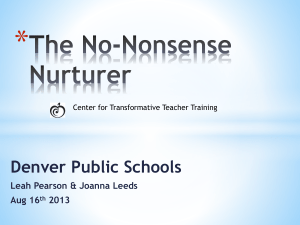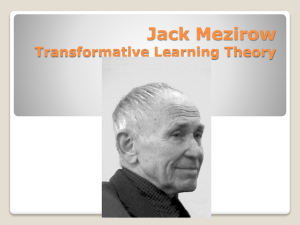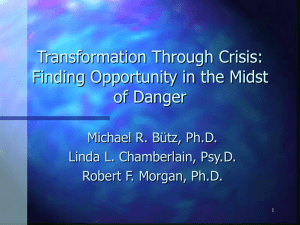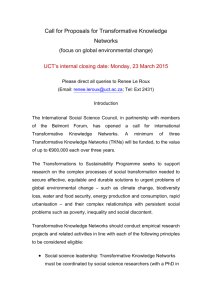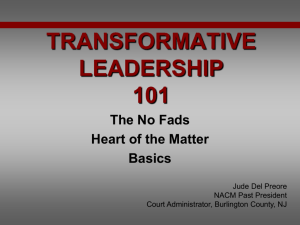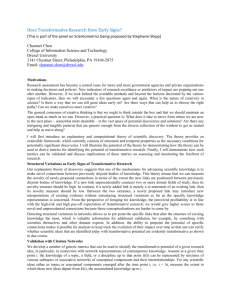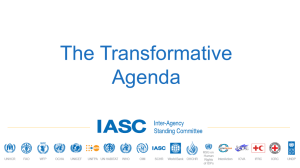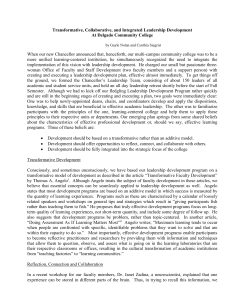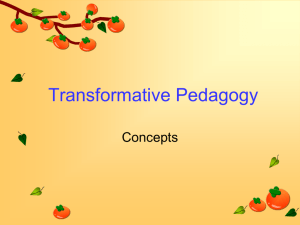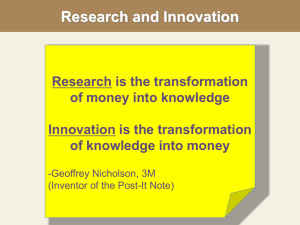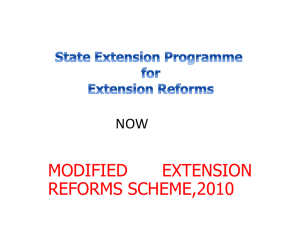Ron Rosmann presentation - Sustainable Agriculture Research
advertisement
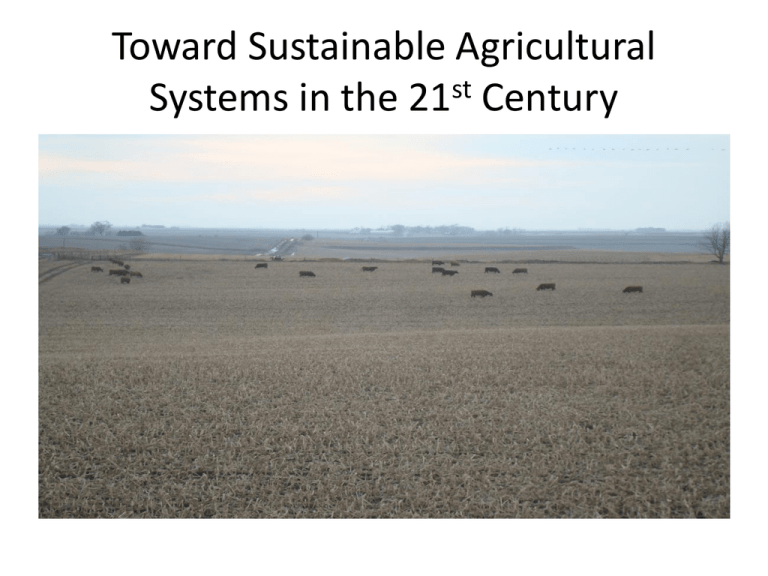
Toward Sustainable Agricultural Systems in the 21st Century Drivers and constraints • Biggest driver : Industrialization of Agriculture over the last 40 years Decreased diversity and crop rotations Vicious Economic Circle for farmers • 1969-2009-Farmers have doubled productivity • 2009-Earned $40 Billion less than in 1969 in net cash income • Net cash income in 2008 (the best year farmers have had since 1974) was lower than in 1929 • Net cash income in 2009 was near zero essentially the same as in 1932 • Source: Ken Meter, Crossroads Resource Center Minneapolis, MN What kind of food system do we have today? • 60% of the food comes from only 2% of the farms • Only a handful of corporations control the input, processing, and marketing of most of what we eat • The producer’s share is down to 19 cents of the food dollar Transformative Changes • Transformative change the last 40 years towards two kinds of agriculture and a shrinking middle class • The new transformative change of the next 40 years • Largely driven by Consumers • Includes all kinds of agriculture, the foundation of which has been certified organic and locally grown Transformative change • Health impacts and true costs of a “cheap food system” • Emerging research implicates pesticides, hormones, antibiotics, food additives, bio-tech, commodity crops, compromised food safety • Human Diseases- Obesity, Diabetes, Cardiac disease, Cancers, Reproductive and Developmental, Endocrine Disruptions, Asthma and Food Allergies, Attention Deficit Disorder, Early Puberty, E. Coli, Salmonella and a host of other not understood ever- increasing health risks What transformative changes do we need in Rural America • • • • • From the view point of a farmer for 37 years Negatives: Loss of farmers, businesses and population Drain of financial resources off the farm and rural communities Industrial Agricultural removes much of its profits from rural America • Confining livestock under one roof • The kind of agriculture we have now only financially benefits the few and the very large • Bigger is still considered better by many farmers and people in general- 120 ft wide planters and combines that can harvest 5,000 bushel/hour, 1 million bushel grain bins at the Farm Progress Show Transformative Changes that we need • • • • More young Farmers More Credit and entry opportunities More Rural Infrastructure Small Meat and animal product processing plants, food processing plants for fruits and vegetables, etc. community kitchens, Institutional food service, development of local and regional food economies • Job opportunities- Iowa could create 6000 jobs if we provided our own fruits and vegetables for our state alone. Transformative change • Farm program reform- reward green practices of all kinds including energy, CSP is the best example • Tax carbon at the source • Get the livestock back on more farms and spread out with ownership by the farmer not the packer and food retailer. • Get Beef and Dairy cattle back on Grass, recognizing the world-wide climate stability value of grass and consumption of animal products. Transformative Changes • Public Research $ for the public good • One of the best examples being public plant breeding not the holding hostage of our world’s seeds by a few companies • Access and competition in the market place and “Seeds and Breeds” • More science-based on-farm research in complex farming systems with universities and researchers-Practical Farmers of Iowa • Transformative change in what college students are learning about how food is produced • Transfer of farming skills, knowledge, and experience from farmers like ourselves to the next generation of farmers Who will feed the World? Who will feed the World? Who will feed the world?
